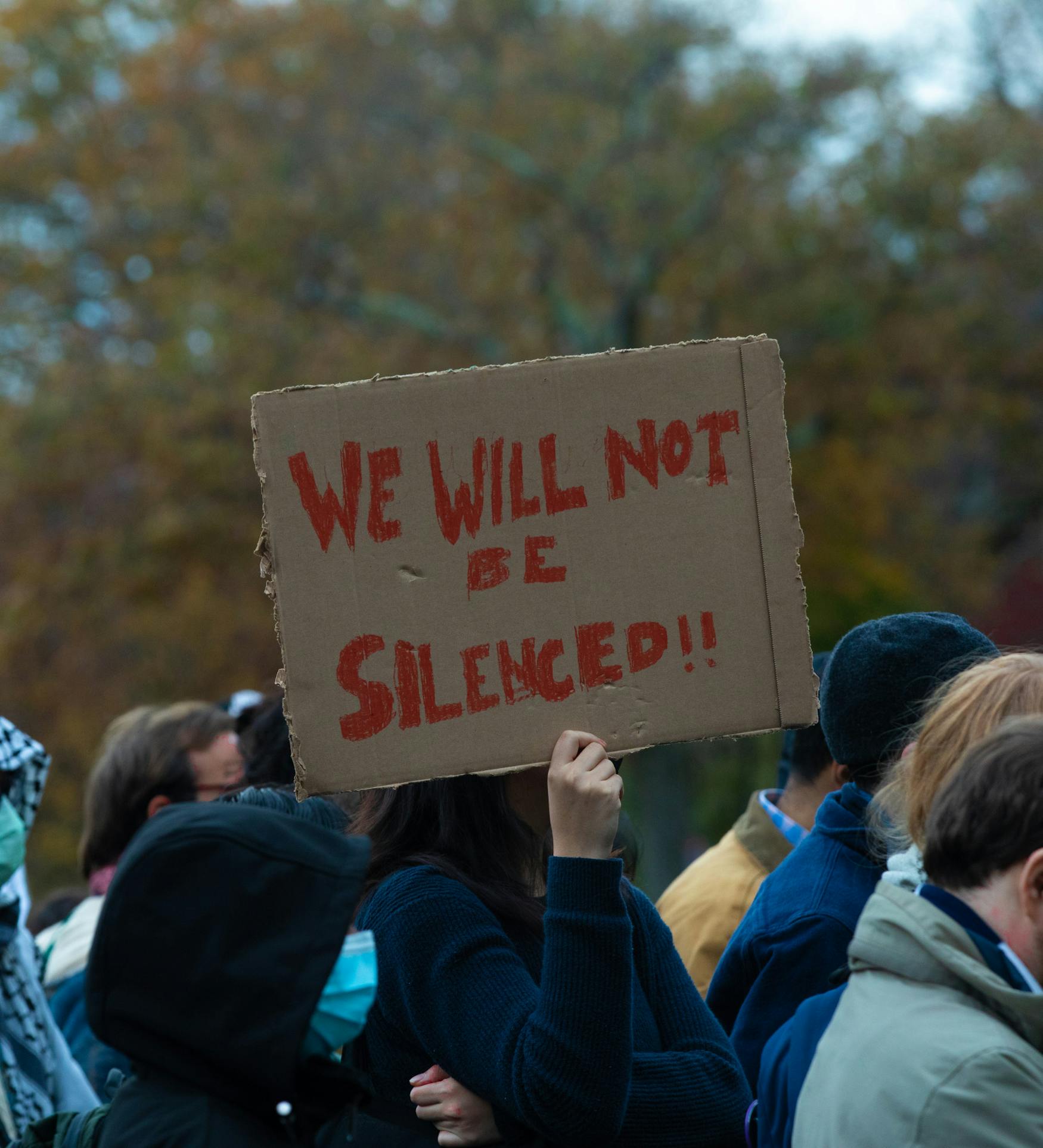A Call for Accountability: Graduate Students Advocate for Justice
The fall semester was incredibly challenging for members of the Brandeis community. Many of us are affected by the violence occurring in Palestine and Israel. Closer to home, the Brandeis administration led by President Ron Leibowitz has repeatedly mishandled its messaging on the violence the Israeli military is waging in Gaza. Brandeis administration has also acted tyrannically and breached community trust in its response to student activism. Despite President Leibowitz’s self-proclaimed pride in setting an example for how other universities respond to this crisis, a vast portion of our campus community does not stand with him. To date, many Brandeis faculty and alumni have voiced their disapproval of the administration’s actions. Similarly, we as a diverse and interdisciplinary group of 40+ graduate students, have come together to set straight the record of events that have taken place on our campus and hold the University administration accountable for its part in escalating a crisis of trust at Brandeis.
We believe that this administration has acted in unethical and undemocratic ways by derecognizing a student organization, unilaterally redefining the parameters of academic freedom and student conduct, preemptively increasing police presence in response to student organizing and most recently, against student organizers. Regardless of the legality of such actions, they reflect blatant misuse of institutional power to ideologically justify and politically aid state violence against Palestinians while silencing critical voices, particularly those of students directly affected by the violence. They also violate our university’s Principles of Free Speech and Free Expression and in doing so have created a climate of distrust and unease between the Brandeis community and its highest leadership.
On Nov. 6, university administration attempted to block a peaceful vigil to observe the loss of Palestinian lives, under the false premise that the organizing group and event constituted "genuine threat or harassment." Despite their efforts, students and community members gathered for the vigil, albeit under surveillance by law enforcement. Later in the week, university administration declared new parameters of hate speech that sought "to introduce prior restraint by attempting to define realms of prohibited speech," a violation of Article 2 of the University's Principles of Free Speech and Free Expression. These actions taken by the upper administration at Brandeis are directly responsible for creating an antagonistic atmosphere that led to unnecessary violence against students by law enforcement at a student-led protest against the new policies.
On Nov. 10, private security and Brandeis police had already been called to the site of the rally by the time it started at 3:30 p.m. What had been an uneventful gathering for over an hour quickly became chaotic as law enforcement rushed to disperse the protesters at the behest of President Leibowitz. The administration justified this escalation and resulting violence on the grounds that the protestors were using “threatening language explicitly described as hate speech.”
We absolutely reject Brandeis administration’s false equivalency between explicit calls for bombing Gaza and burning civilians with popular pro-Palestine slogans, particularly those that, as the administration certainly recognized, are commonly chanted at protests for Palestinian liberation. The phrases “from the river to the sea” and “intifada” are broad and capacious and contain multiple meanings, including peaceful calls for an end to all violence against Palestinian people. It is intentionally deceitful to label these phrases as “hate speech,” and this move represents nothing less than the administration’s effort to suppress the expression of pro-Palestine sentiment on campus.
Brandeis administration has rightfully received blowback from many in the community, including faculty, students, as well as alumni. But rather than acknowledge the harm done or the community’s concerns, the administration continued its momentum to censor dissenting voices by dictating the parameters by which conversations about Palestine and Israel would be permitted. This included several events that claimed to offer “expert” voices on the “Israeli-Palestinian conflict,” which only included professors who have historically expressed political opinions in support of the Israeli occupation, one of whom has called for violence against civilians in Gaza, as well as former Israeli Prime Minister Naftali Bennett’s top aide, Shimrit Meir. These actions reflect purposeful misleading by the administration to advertise these events as representing scholarly expertise on the war without including a single Palestinian voice.
While the Board of Trustees and President Leibowitz may think they are displaying moral clarity, students, instructors, and researchers at Brandeis have had a different experience. We feel a deepening alienation, distrust, and lack of safety in our shared spaces. To date, the actions and messages of this administration have only served to remind many of us that Brandeis does not belong to all who make the University what it is. We continue to struggle with the lack of recognition of the harm done and the trust broken on our campus.
If the administration genuinely wishes for us to heal as a community, we call on them to:
- Take public responsibility and issue an apology for the unnecessary escalation of violence on campus that took place on Nov. 10.
- Formally ask the District Attorney’s office to have the charges against all arrested participants dropped.
- Withdraw disciplinary action against Brandeis students.
- Recognize the student-led organization, Students for Justice in Palestine.
- Retract the parameters of “hate speech” that were set forth on Nov. 6.
We love the Brandeis community, especially its values rooted in the pursuit of justice and lifelong learning. We also respect Brandeis’ history of student protest. These were key reasons in our decision to attend and work for this University. But the current leadership has not honored these central aspects of what distinguishes this school, and we urge University leadership to change course.
Signed,
Graduate Students for Palestine and Free Speech on Campus




Please note All comments are eligible for publication in The Justice.